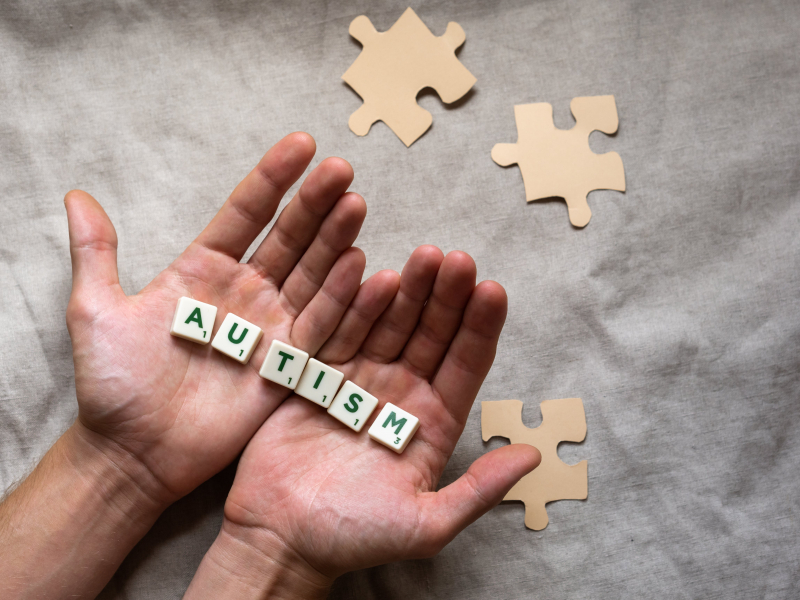Top 10 Cause and Effect Essay Topics on Psychology and Samples
Psychology causes and effects essays delve into the complexities of human behavior, exploring origins and consequences to deepen understanding and promote ... read more...effective interventions for well-being.
-
Essay topic: How Does Childhood Trauma Impact on Childhood Development?
Answer:
Childhood trauma, a poignant and pervasive issue, leaves an indelible mark on the developmental journey of young individuals. This essay delves into the causes and effects of childhood trauma, unraveling its profound impact on the developmental trajectory.
The primary cause of childhood trauma often lies in adverse experiences, including abuse, neglect, or exposure to violence. These experiences disrupt the natural course of a child's development, instigating profound emotional and psychological repercussions. Family dynamics also contribute significantly to childhood trauma. Dysfunctional family structures, parental substance abuse, and domestic violence create an environment fraught with instability, increasing the likelihood of traumatic experiences for the child.
Furthermore, societal factors such as poverty, discrimination, and inadequate access to resources can expose children to situations that contribute to trauma. These external influences compound the challenges faced by young minds striving for healthy development.
Childhood trauma manifests in various ways. Emotional consequences include heightened anxiety, depression, and a compromised ability to form healthy relationships. Cognitive effects may involve difficulties in concentration, memory issues, and impaired academic performance.
Behavioral repercussions are also prevalent, with traumatized children often exhibiting aggression, withdrawal, or engaging in risky behaviors as coping mechanisms. Additionally, the long-term impact extends into adulthood, affecting mental health, relationships, and overall life satisfaction.
In conclusion, childhood trauma, stemming from adverse experiences and societal factors, profoundly impacts emotional, cognitive, and behavioral development. A comprehensive approach involving support systems and community initiatives is crucial for fostering resilience and healing. Understanding these causes and effects is imperative for creating environments that ensure a brighter future for affected individuals.

Photo by Helena Lopes via pexels 
Photo by RDNE Stock project via pexels -
Essay topic: Origins and Consequences of Schizophrenia for Individuals and Society
Answer:
Schizophrenia, a complex mental disorder, has intrigued researchers and clinicians for decades. Its origins are multifaceted, often stemming from a combination of genetic, neurological, and environmental factors. Understanding the causes is crucial in comprehending the severe consequences it imposes on individuals and society.
Schizophrenia's roots can be traced to a genetic predisposition, with a higher likelihood of occurrence in individuals with a family history of the disorder. Research indicates that certain genes associated with brain development and neurotransmitter regulation may contribute to its manifestation. Additionally, neurological factors, such as imbalances in neurotransmitters like dopamine, play a pivotal role. Traumatic experiences during early brain development or birth complications may also heighten susceptibility.
Environmental stressors, another significant contributor, can trigger schizophrenia in genetically predisposed individuals. Childhood trauma, substance abuse, and high-stress levels have been identified as potential catalysts. The urban upbringing, marked by increased social isolation and exposure to societal pressures, may elevate the risk. These causes intertwine, creating a complex web that defines the onset of schizophrenia.
The consequences of schizophrenia are profound, impacting both individuals and society. On a personal level, those affected often struggle with distorted perceptions of reality, impaired cognitive functions, and difficulty in maintaining relationships. Employment and educational opportunities are curtailed, exacerbating the already challenging journey to recovery. The burden extends to families, who often face emotional and financial strains in supporting their loved ones.
Societal implications include increased healthcare costs and a higher demand for mental health services. Stigmatization and misunderstanding of the disorder persist, hindering social integration for affected individuals. Addressing the root causes through comprehensive mental health initiatives, genetic research, and societal awareness is essential to mitigate the far-reaching consequences of schizophrenia.
In conclusion, the intricate interplay of genetic, neurological, and environmental factors contributes to the origins of schizophrenia. Its consequences extend beyond the individual, affecting families and society at large. Efforts towards prevention, early intervention, and destigmatization are crucial in addressing this complex mental health challenge.
Photo by Evelyn Chong via pexels 
Photo by Evelyn Chong via pexels -
Essay topic: The sources and ramifications of Obsessive-Compulsive Disorder (OCD) on affected individuals and the surrounding social environments.
Answer:
Obsessive-Compulsive Disorder (OCD) is a pervasive mental health condition that exerts a substantial impact on millions of individuals globally. The complexity of this disorder necessitates a comprehensive exploration of its origins to gain insight into the profound consequences it imposes on both the affected individuals and their surrounding social spheres.
The causes of OCD are multi-faceted, often rooted in a combination of genetic, neurological, and environmental factors. Genetic predisposition plays a significant role, with studies indicating a higher likelihood of developing OCD if a close family member has the disorder. Neurologically, imbalances in serotonin, a neurotransmitter, are associated with OCD. Environmental factors, such as childhood trauma or stressful life events, can act as triggers for the disorder in genetically susceptible individuals. The intricate interplay of these factors contributes to the onset of OCD.
The effects of OCD are pervasive, affecting various aspects of an individual's life. Firstly, obsessive thoughts and compulsive behaviors disrupt daily functioning, leading to impaired productivity and strained relationships. Individuals with OCD often face challenges in education and employment due to the intrusive nature of their obsessions. Moreover, the constant anxiety and distress associated with OCD can lead to comorbid conditions, such as depression or other anxiety disorders.
The impact of OCD extends beyond the individual, affecting families, friends, and society. Family members may experience stress and frustration while trying to understand and support their loved ones. Society, in turn, bears the economic burden of increased healthcare costs and decreased productivity. Addressing the root causes of OCD through genetic research, targeted therapies, and public awareness campaigns is vital in mitigating its far-reaching consequences.
To bring things to a close, OCD's origins lie in a complex interplay of genetic, neurological, and environmental factors. Its consequences are profound, affecting not only the individual but also those within their social sphere and society at large. Efforts directed towards understanding and addressing these causes are essential for effective prevention and intervention strategies.
Photo by Any Lane via pexels 
Photo by Any Lane via pexels -
Essay topic: The beginnings and outcomes of Autism Spectrum Disorder (ASD) on individuals impacted and the broader social contexts in which they exist.
Answer:
Autism Spectrum Disorder (ASD) is a complex condition that profoundly influences individuals and the broader social contexts in which they navigate. Understanding the causes is essential for grasping the far-reaching effects it has on both those directly affected and the communities around them.
The causes of ASD are multifaceted, encompassing genetic, environmental, and neurological factors. Genetic predisposition plays a crucial role, with studies suggesting a higher likelihood of ASD in individuals with a family history of the disorder. Additionally, certain genetic mutations associated with brain development contribute to its onset. Environmental factors, such as prenatal complications or exposure to certain toxins, may also increase the risk. The neurological underpinnings involve atypical brain structure and function, affecting social interaction and communication skills. The interplay of these causes forms a complex web that leads to the emergence of ASD.
The effects of ASD are profound, impacting various aspects of an individual's life and extending to the broader social environment. On an individual level, those with ASD often face challenges in social interactions, communication, and repetitive behaviors. Educational and occupational opportunities may be hindered, affecting long-term prospects. Families often experience emotional and financial strains in supporting their loved ones with ASD. Socially, the broader community faces the challenge of creating inclusive environments and breaking down stigmas associated with the disorder.
The consequences of ASD extend beyond the immediate challenges faced by individuals and their families. Society at large is tasked with fostering awareness and understanding to create inclusive spaces. Educational and workplace accommodations are imperative to facilitate the integration of individuals with ASD. Ongoing research, early intervention programs, and support services contribute to minimizing the societal impact of ASD.
In conclusion, the origins of Autism Spectrum Disorder are complex, involving genetic, environmental, and neurological factors. Its effects ripple through individuals' lives and the broader social fabric. Addressing these causes and fostering societal inclusivity are key to mitigating the challenges posed by ASD and ensuring a supportive environment for affected individuals.
Photo by Polina Kovaleva via pexels 
Photo by Darya Sannikova via pexels -
Essay topic: How Post-Traumatic Stress Disorder (PTSD) Influences Individuals and Its Consequences.
Answer:
Post-Traumatic Stress Disorder (PTSD) is a pervasive psychological condition that profoundly influences individuals, shaping their thoughts, emotions, and behaviors. Understanding the causes and effects of PTSD is essential for providing effective support to those affected and fostering awareness in society.
The causes of PTSD are often rooted in exposure to traumatic events, such as combat, accidents, or assault. Individuals who undergo such experiences may develop symptoms like flashbacks, nightmares, and severe anxiety. The psychological impact stems from the brain's struggle to process and make sense of the trauma, leading to persistent distress. Additionally, predisposing factors like genetic susceptibility, pre-existing mental health conditions, and lack of a robust support system can contribute to the development of PTSD.
The effects of PTSD are multi-faceted, encompassing emotional, physical, and social dimensions. Emotionally, individuals with PTSD may grapple with persistent feelings of fear, guilt, or shame, impacting their overall well-being. Physically, the condition can manifest as heightened stress responses, potentially leading to cardiovascular issues and compromised immune function. Socially, individuals may experience strained relationships, withdrawal from social activities, and difficulty in forming new connections, contributing to a sense of isolation.
Occupationally, the impact of PTSD is notable, affecting an individual's ability to perform effectively in the workplace. Symptoms like hypervigilance and difficulty concentrating may lead to job-related challenges, potentially resulting in unemployment. Substance abuse can also become a coping mechanism, exacerbating the overall consequences of PTSD and contributing to a cycle of self-destructive behaviors.
In conclusion, the origins of Post-Traumatic Stress Disorder lie in exposure to traumatic events, compounded by various contributing factors. Its effects extend beyond the emotional realm, influencing physical health, social interactions, and occupational stability. Addressing the complex interplay of causes and effects is crucial for developing comprehensive interventions and support systems to alleviate the burdens faced by individuals dealing with PTSD.
Photo by RDNE Stock project via pexels 
Photo by Mikhail Nilov via pexels -
Essay topic: How Post-Traumatic Stress Disorder (PTSD) Influences Individuals and Its Consequences.
Answer:
Bipolar Disorder, a mental health condition characterized by extreme mood swings, significantly influences individuals, shaping their daily lives and overall well-being. Understanding the causes and effects of this disorder is crucial for effective intervention and support.
The factors leading to Bipolar Disorder are complex, often involving a combination of genetic, biological, and environmental factors. Genetic predisposition plays a notable role, with a higher likelihood of developing the disorder if there is a family history. Neurochemical imbalances, particularly in neurotransmitters like serotonin and dopamine, contribute to the manifestation of bipolar symptoms. Stressful life events, trauma, or substance abuse may act as triggers, exacerbating the onset of bipolar episodes. The intricate interplay of these factors creates a web that underlies the origins of Bipolar Disorder.
The end results of Bipolar Disorder on individuals are profound and extend across various aspects of their lives. Firstly, the disorder impacts emotional stability, leading to intense periods of mania and depression. Individuals may struggle to maintain consistent relationships due to the unpredictable nature of their moods. Occupational functioning is often compromised, with difficulties in concentration and decision-making during both manic and depressive phases. Financial instability may result from impulsive behavior during manic episodes, further complicating the individual's life.
Social consequences are also prevalent, as individuals with Bipolar Disorder may face stigmatization and societal misunderstanding. The disorder can lead to social isolation, exacerbating the emotional toll on affected individuals. Additionally, the strain on familial relationships is notable, with family members often shouldering the burden of supporting their loved ones through the challenges posed by Bipolar Disorder.
To wrap up, Bipolar Disorder significantly affects individuals on emotional, occupational, and social levels. Its causes, rooted in genetic, biological, and environmental factors, contribute to the complexity of this mental health condition. Recognizing the multifaceted effects is crucial for developing tailored interventions and support systems to enhance the quality of life for those living with Bipolar Disorder.
Photo by Alex Green via pexels 
Photo by Erik Mclean via pexels -
Essay topic: The Impact of Anxiety Disorders on Individuals and Their Subsequent Effects.
Answer:
Anxiety Disorders, pervasive mental health conditions, significantly shape the lives of individuals, influencing their thoughts, emotions, and behaviors. Understanding the causes and effects of these disorders is paramount for effective intervention and support.
The causes of Anxiety Disorders are multifaceted, often arising from a combination of genetic, environmental, and psychological factors. Genetic predisposition plays a significant role, with individuals having a family history of anxiety disorders being more susceptible. Environmental stressors, such as trauma, abuse, or major life changes, can act as triggers for anxiety. Additionally, an imbalance in neurotransmitters, particularly serotonin and dopamine, contributes to the development and exacerbation of anxiety symptoms. The complexity of these causes underscores the intricate web that gives rise to Anxiety Disorders.
The outcomes of Anxiety Disorders on individuals manifest across various dimensions of their lives. Firstly, there is a pervasive impact on mental well-being, leading to persistent feelings of fear, worry, and unease. Individuals may experience disruptions in sleep patterns, heightened irritability, and difficulty concentrating, affecting their daily functioning. Socially, anxiety can lead to isolation as individuals withdraw from social activities due to overwhelming apprehension. Occupational functioning may also be compromised, with challenges in decision-making and performance.
The consequences of Anxiety Disorders extend beyond the individual to influence familial and societal spheres. Families of those affected may experience emotional strain and frustration while trying to understand and support their loved ones. In society, there is an increased demand for mental health services, leading to economic and healthcare implications. Stigmatization and misunderstanding of anxiety disorders persist, hindering the creation of supportive environments.
To sum up, Anxiety Disorders have a profound impact on individuals, affecting their mental well-being, social interactions, and occupational functioning. Addressing the complex causes and effects of anxiety requires a comprehensive approach, involving awareness, education, and accessible mental health resources to support those grappling with these challenging conditions.
Photo by Liza Summer via pexels 
Photo by Liza Summer via pexels -
Essay topic: The Aftermath Stemming From Eating Disorders in Individuals and Their Effects.
Answer:
Anxiety Disorders cast a pervasive shadow on individuals, leaving an indelible mark on their mental and emotional well-being. Understanding the causes and effects of these disorders is essential for providing effective support and fostering awareness.
The sources of Anxiety Disorders are intricate, often rooted in a combination of genetic, environmental, and psychological factors. A familial predisposition to anxiety can heighten an individual's vulnerability, while environmental stressors, such as trauma or major life changes, may act as triggering events. Additionally, imbalances in neurotransmitters, like serotonin and dopamine, contribute to the development and exacerbation of anxiety symptoms. The intertwining of these factors underscores the complexity of the origins of Anxiety Disorders.
The effects of Anxiety Disorders are far-reaching, impacting individuals on both mental and social levels. Mentally, individuals grapple with persistent feelings of fear, worry, and unease. Sleep disturbances, irritability, and difficulty concentrating further compromise daily functioning. Socially, anxiety often leads to isolation as individuals withdraw from social activities, hindering the development and maintenance of relationships.
Hence, the consequences extend beyond the individual to affect familial and societal dynamics. Families may bear the emotional strain of supporting a loved one with an anxiety disorder, navigating the challenges posed by unpredictable emotional states. Societal implications include an increased demand for mental health services and resources, as anxiety disorders become more prevalent. The stigmatization surrounding mental health also contributes to the isolation of those grappling with anxiety.
In conclusion, Anxiety Disorders deeply impact individuals mentally and socially, affecting relationships and daily functioning. Recognizing the intricate causes and widespread effects is crucial for fostering a supportive environment that encourages understanding, empathy, and accessible mental health resources for those navigating the complexities of anxiety disorders.
Photo by Polina Tankilevitch via pexels 
Photo by Nadin Sh via pexels -
Essay topic: How social media affects self-esteem and its subsequent consequences.
Answer:
Social media, a ubiquitous presence in modern life, has profound effects on individuals' self-esteem, influencing how they perceive themselves and interact with the world. Understanding the causes and effects of this impact is crucial in navigating the complexities of online interactions.
The causes of social media's impact on self-esteem are rooted in the curated nature of online content. Individuals often present idealized versions of their lives, creating unrealistic standards. The constant exposure to these curated images fosters comparison and a sense of inadequacy. Additionally, the prevalence of online validation through likes and comments reinforces the idea that one's worth is determined by external approval. The combination of these factors contributes to a negative impact on self-esteem.
The repercussions of social media on self-esteem are far-reaching. Firstly, individuals may experience heightened feelings of inadequacy, leading to anxiety and stress. The constant comparison to idealized standards can result in a distorted self-image. Secondly, the pursuit of external validation on social media may lead to a reliance on others' opinions for self-worth, creating a fragile sense of identity. Lastly, the pressure to conform to online standards can contribute to the development of mental health issues such as depression and body dissatisfaction.
Therefore, the subsequent consequences of social media's impact on self-esteem extend to various aspects of individuals' lives. Social withdrawal may occur as individuals avoid potential judgment or comparison. Academic and professional performance may suffer due to reduced self-confidence. Additionally, the perpetuation of unrealistic beauty standards may contribute to the rise of body image issues and disordered eating behaviors.
To wrap up, the impact of social media on self-esteem is complex, driven by curated content and the pursuit of external validation. Understanding these causes and effects is crucial for fostering a healthier online environment and promoting positive self-perception. Balancing online interactions and cultivating a genuine sense of self-worth offline can help mitigate the adverse consequences of social media on self-esteem.
Photo by lil artsy via pexels 
Photo by murat esibatir via pexels -
Essay topic: How social media affects self-esteem and its subsequent consequences.
Answer:
In today's digital age, technology plays a central role in our lives, profoundly influencing cognitive functions, particularly in social contexts. Examining the causes and effects of technology dependence on cognitive function is crucial to understanding its ramifications.
The causes of cognitive function being affected by technology dependence in social contexts are manifold. Firstly, the constant exposure to digital devices and screens can lead to information overload, hampering attention spans and cognitive processing. Additionally, the ease of accessing information instantly diminishes the need for critical thinking and problem-solving skills. The prevalence of social media further contributes by encouraging passive consumption of information, reducing active engagement and critical analysis.
The effects of technology dependence on cognitive function are evident in social interactions. Firstly, the decline in face-to-face communication skills is notable, as individuals become more accustomed to expressing themselves through digital platforms. Social anxiety may also increase, as the reliance on online communication reduces the ability to navigate complex social cues in real-time. Furthermore, the instant gratification provided by technology can lead to impatience and a decreased tolerance for delayed responses in face-to-face interactions.
Thus, the ramifications extend beyond individual cognitive functions to societal dynamics. Social relationships may suffer as genuine connections are replaced by digital interactions. The ability to empathize and understand others' perspectives may diminish, leading to a more polarized and divided society. Additionally, the quality of collaborative efforts in workplaces and educational settings may be compromised as individuals struggle with effective communication and teamwork.
In summary, the ramifications of cognitive function affected by technology dependence in social contexts are vast, impacting individuals and society at large. Balancing technology use, fostering face-to-face interactions, and promoting critical thinking skills are essential in mitigating these effects and ensuring a harmonious integration of technology into our social lives.
Photo by mikoto.raw Photographer via pexels 
Photo by Vlada Karpovich via pexels































